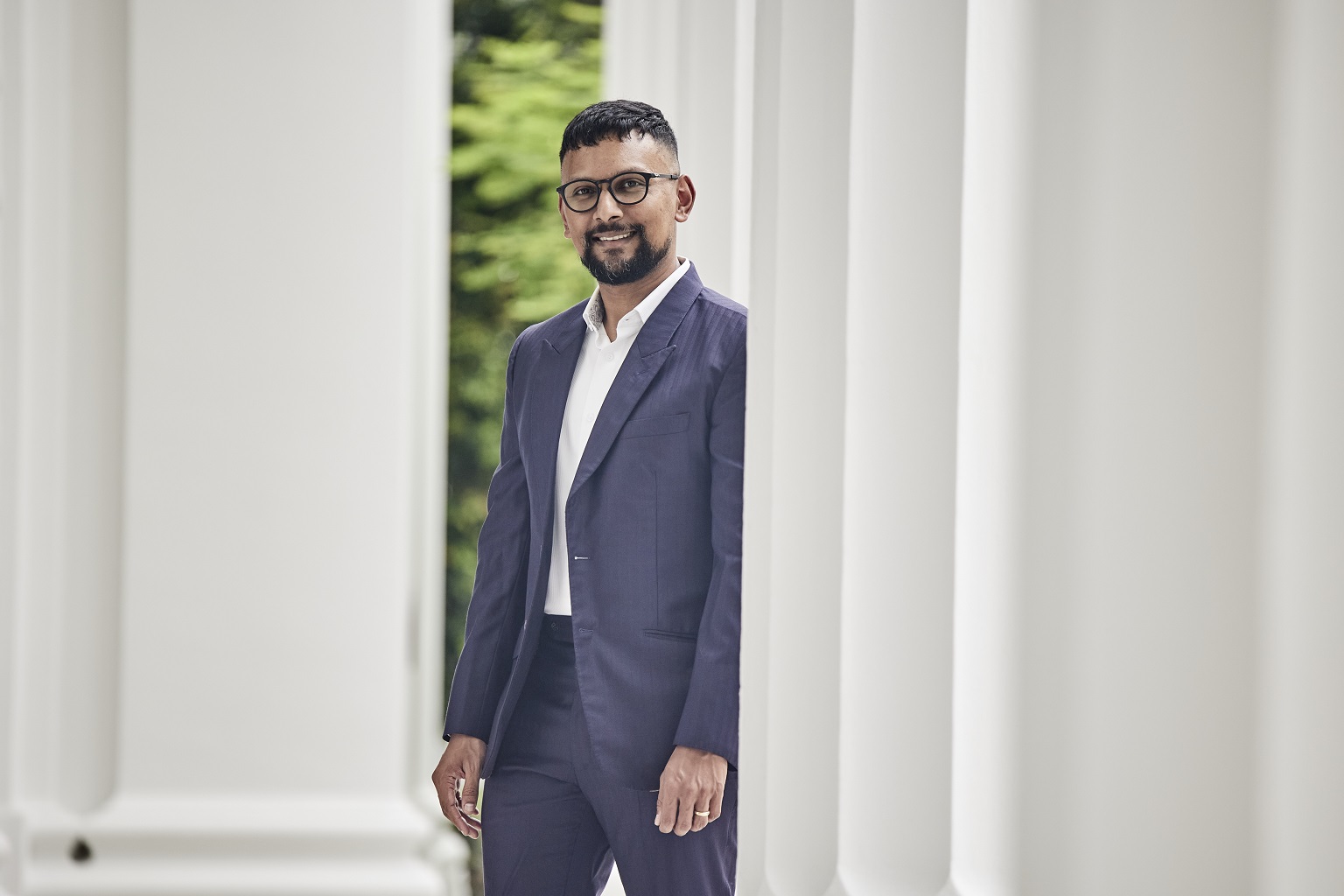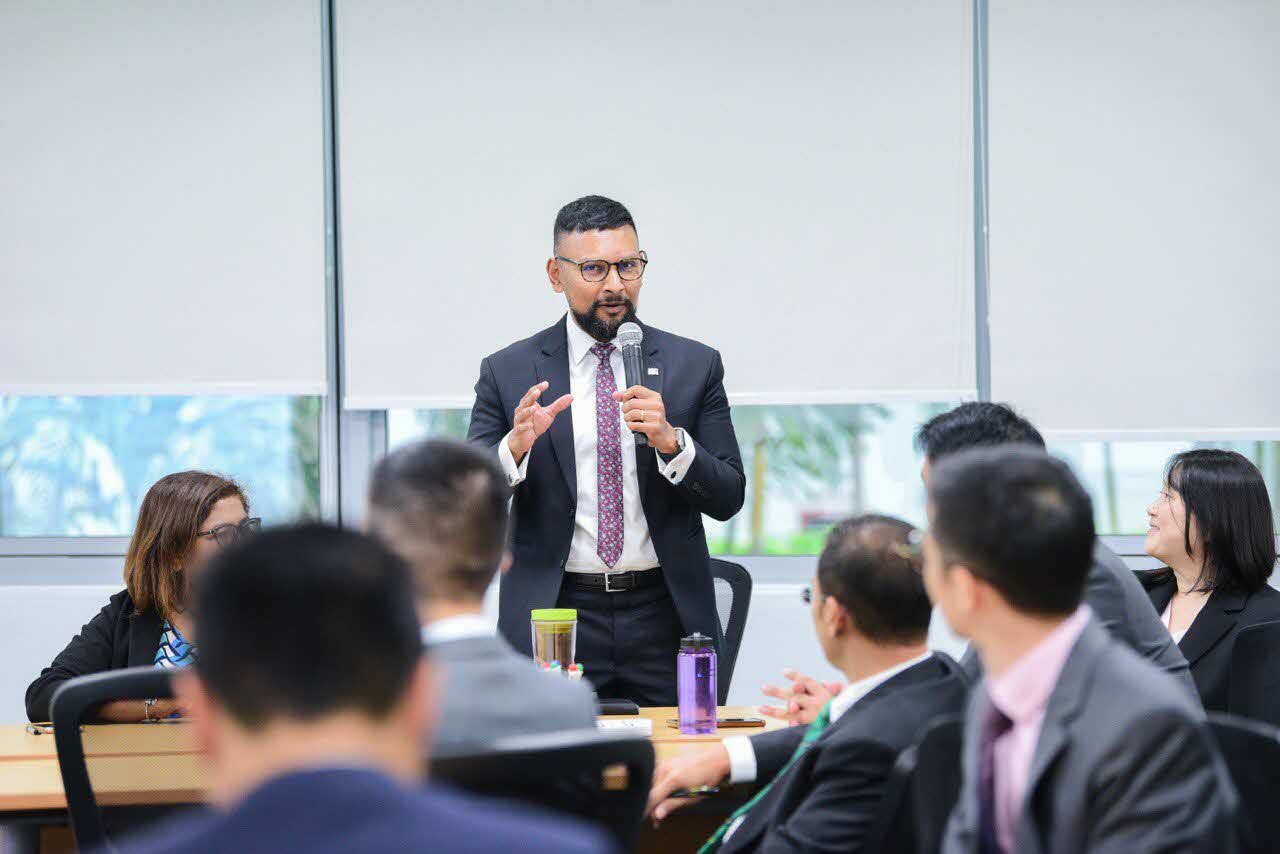
When Asif Iqbal rides his bicycle around his neighbourhood in the east, he feels a deep sense of satisfaction.
The view around his neighbourhood has changed dramatically over the years. Once empty plots of land have transformed into bustling industries that provide hundreds of quality jobs for Singaporeans.
“Sometimes, policy work and its intended effects can take a long time to come to fruition. So it’s quite satisfying to see some of your work materialise into actual facilities and jobs,” says the 36-year-old, reflecting on his role at the Ministry of Finance (MOF) in shaping policies to catalyse economic development in Singapore.
Today, as deputy director at the Ministry of Health (MOH), Asif is tackling another one of Singapore’s most complex challenges: ensuring that quality healthcare remains accessible and affordable for current generations, without creating undue burden on future ones. His work requires long-term planning and innovative problem solving – skills honed through years of experience serving in diverse roles in the public service.
This opportunity to solve “intractable problems” drew him to the Public Service Commission (PSC) Scholarship as a youth fresh out of junior college.
“I’ve been fortunate to be given the opportunity to work in various policy areas since then – from climate change to youth development, economic strategy and now healthcare financing,” says Asif. “My goal of taking up the scholarship was to have the chance to work in different areas of the Government, improve policies and how we govern, and ultimately make life better for Singaporeans.”
Asif pursued a bachelor’s degree in economics at The London School of Economics and Political Science after being awarded the PSC Scholarship in 2009. He later completed his master’s in public administration at Columbia University in 2013.
“I was grateful to have the opportunity that the scholarship afforded me to study overseas in London and New York, providing a good foundation and an exposure to how other countries work and govern,” he says.
This global perspective came into play during his first posting at the National Climate Change Secretariat in 2014, a division under the Prime Minister’s Office. There, he was part of a team that helped to deliver Singapore’s commitment to reduce emissions under the Paris Agreement, which outlines plans to tackle climate change.
He quickly put his economics training to work, coordinating with multiple agencies to negotiate the trade-offs between pursuing economic growth and climate action.

“Economics equips you with a suite of tools to assess and apply in public policy. It helps you to assess the short- and long-term costs, decide what is worth pursuing and create the right incentive structures to make it happen,” he says.
In 2016, Asif joined the Ministry of Culture, Community & Youth, where he spearheaded youth engagement efforts. The move, part of the scholarship’s structured rotation, gave him the chance to work on something completely different: bringing communities together and helping to develop and give voice to the youth of Singapore.
His posting coincided with a crucial time when Singapore was building on the momentum of SG Together, a national movement to build deeper partnerships between Singaporeans and the Government.
“There was a groundswell of young people who wanted a greater say in the way Singapore was being run,” he says. His efforts culminated in the SG Youth Action Plan that engaged 70,000 youths and created a framework for policies that better reflected their aspirations and needs.
While most of Asif’s career has focused on long-term policies, the Covid-19 pandemic showed him a different side of public service. At the height of the pandemic, Asif joined MOF to direct financial resources to help Singaporeans tide through the biggest economic crisis in the nation’s history.
“We worked tirelessly to compress months of work into weeks to roll out emergency support to businesses, to provide them timely relief in an unprecedented crisis,” he recalls.
Beyond the immediate crisis response, Asif also worked on policies to strengthen Singapore’s long-term economic competitiveness.
A key initiative was the Refundable Investment Credit announced at Budget 2024 by then-Deputy Prime Minister Lawrence Wong. This scheme encourages companies to make sizeable investments that bring substantive economic activities to Singapore in key economic sectors and new growth areas.
“My goal of taking up the scholarship was to have the chance to work in different areas of the Government, improve policies and how we govern, and ultimately make life better for Singaporeans.”
– Asif Iqbal, recipient of the Public Service Commission Scholarship
Now at MOH, Asif faces his biggest challenge yet in healthcare financing.
As Singapore’s population ages at one of the fastest rates in Asia, the healthcare system faces a perfect storm of surging medical needs, rising consumption of healthcare and higher manpower costs. Government spending on healthcare costs is expected to hit $27 billion in 2030, up from $11 billion in 2019.
“Healthcare costs will be a huge fiscal strain and we need to make sure we take care of people today, without passing that burden on to the future,” he says.
This requires overseeing healthcare subsidies and funding frameworks for hospitals while balancing three competing objectives: making healthcare affordable, high quality and accessible.
His economics training and diverse range of public policy experiences continue to serve him well in identifying the most cost-effective way to fund a quality healthcare system and spurring efficiency through financial innovation.
“While the outcomes will take time to fully materialise, it’s rewarding to know that the policies we’re putting in place today will help deliver sustainable care for current and future generations,” he says.
| About the Public Service Commission Scholarship The Public Service Commission (PSC) Scholarship is Singapore’s premier government scholarship, awarded to outstanding individuals with a passion for public service. It offers scholars the opportunity to pursue their studies at top universities worldwide, entry into the Public Service Leadership Programme (the central leadership development programme in the Singapore Public Service), and exposure to diverse experiences through structured rotations across government ministries and agencies. |
This article is brought to you by the Public Service Commission.